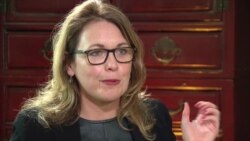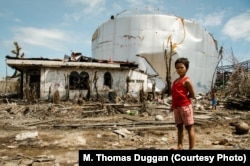In a world shaken by woes such as terrorism, the Syrian war and the migrant influx in Europe, reducing poverty is increasingly vital to global stability, according to the head of the Millennium Challenge Corp.
The independent U.S. agency promotes economic growth, dispensing grants and aid to countries showing dedication to good governance.
CEO Dana Hyde said fighting corruption and advocating for the rule of law in the developing world helps promote American values overseas, too.
"We make the case for the mission of MCC, which is: How do we reduce poverty through economic growth?" Hyde said in March testimony before the U.S. House Committee on Foreign Affairs, where she proposed a $100 million increase for fiscal 2017, for a total budget of $1 billion.
Spreading assistance
Launched with bipartisan support in 2004, MCC now works with 45 developing countries, including in Africa, Asia and Latin America.
Hyde recently traveled to Senegal, where the agency expects to build on existing investments of $540 million.
"I can close my eyes and see the faces of the kids that greeted us … [and] see what our investments are doing in the north and in the south," she said, citing community supports such as markets and roads. "We were also able to go see one of the irrigation facilities, where the water is flowing in and helping the farmers come back to the region."
Senegal has been approved for a second deal. Hyde said teams already were in the country "looking at the economy and seeing what are those constraints to growth, in particular, and at potential regional investments in West Africa."
Benin also receives U.S. aid through the MCC. The small nation of about 11.5 million – which just democratically elected a new president – has had two grants totaling $754 million.
Omar Arouna, Benin’s ambassador in Washington, said the first compact was meant to address barriers such as poor access to the nation’s main port.
The compact "helped reorganize and rebuild the port, which has become very functional now and by all standards is one of the best ports" on Africa’s western coast, Hyde said. The compact "also helped organize the financial sector."
The new deal address the energy sector, which Arouna said is essential to development. Roughly $41 million is earmarked for institutional reforms such as restructuring laws, and another $136 million will go to power generation, he said. The balance will go toward improving transmission and infrastructure, some of which is "very old and need[s] to be refurbished."
Leveraging capital
Leveraging private capital has become a focus for the agency in places such as El Salvador, Hyde said. "We’re also going to be looking at education … the nexus between vocational education and actual job training."
In the Philippines, which experiences fierce tropical storms, "we’ve built a road that actually was right in the center of where the typhoon recently came, and withstood that, and was an artery for recovery," Hyde said, noting MCC is "back for another investment" there.
MCC is supporting other projects. In Nepal, teams of engineers are accessing the country’s hydro energy capabilities. In Sri Lanka, the agency hopes to improve democratic institutions.
MCC criteria
While some countries take full advantage of MCC's help, others say obtaining it can be too complicated.
Hyde said the agency aids nations that have gotten positive assessments from independent organizations such as the World Bank. They're scored on 20 indicators in three clusters: economic freedom; the degree to which countries invest their own resources in areas such as public health and immunizations; and in governance, civil liberties, political rights and corruption control. MCC looks for countries that score in the upper half.
Cote D’Ivoire and Togo, for instance, "set out to improve their performance and not just for the MCC itself," Hyde said. "… You’ll see in Cote D’Ivoire there’s more foreign direct investment going into the country as governance has improved and as the corruption landscape has improved."






